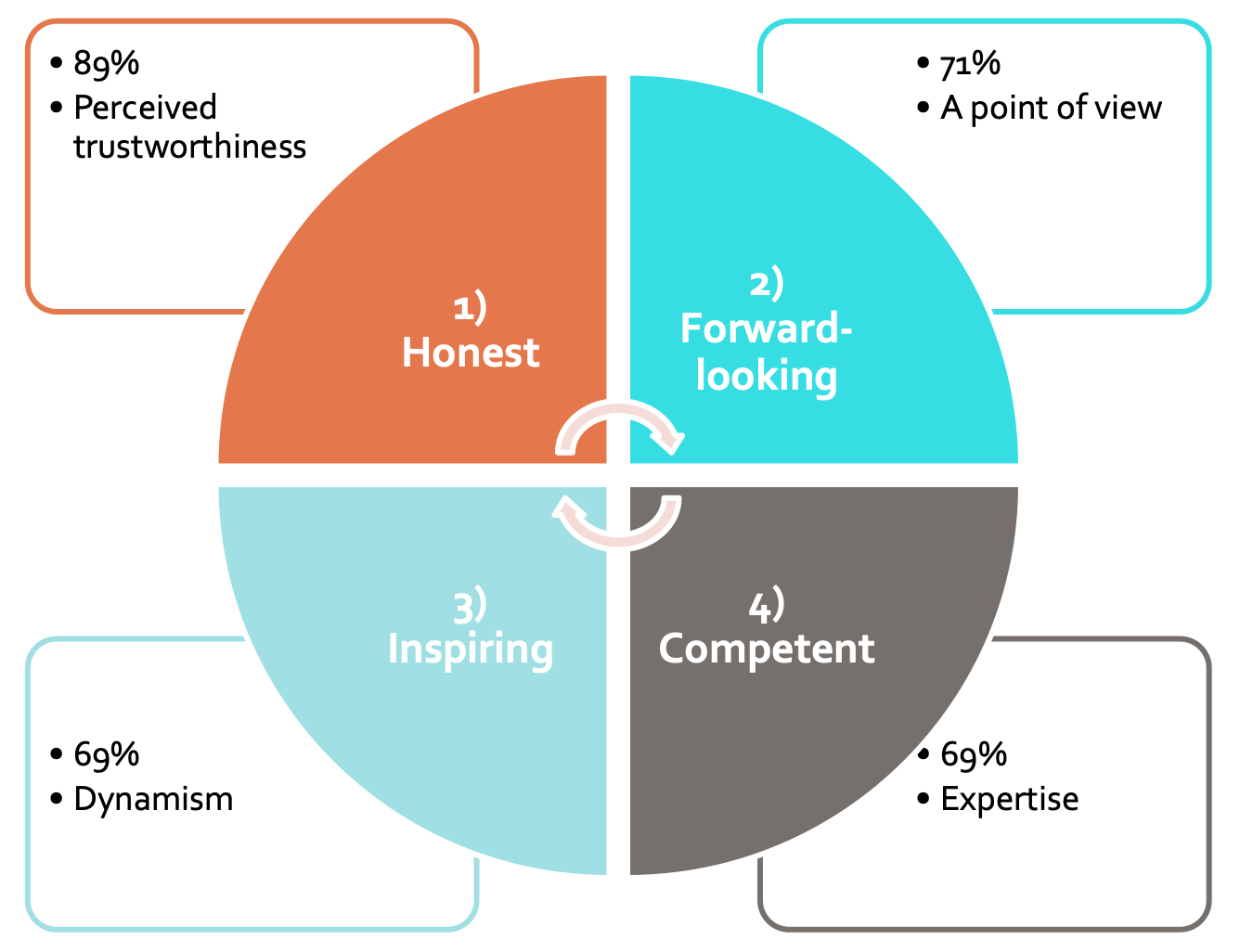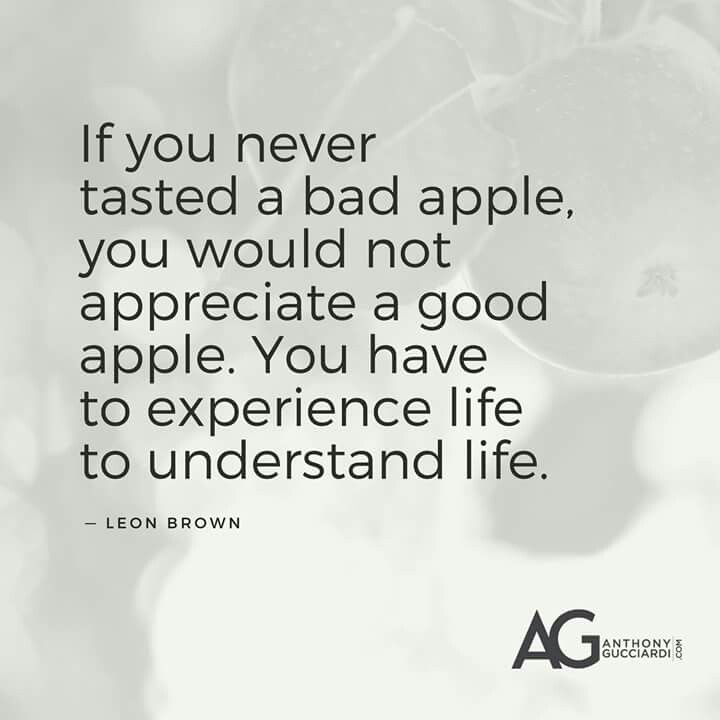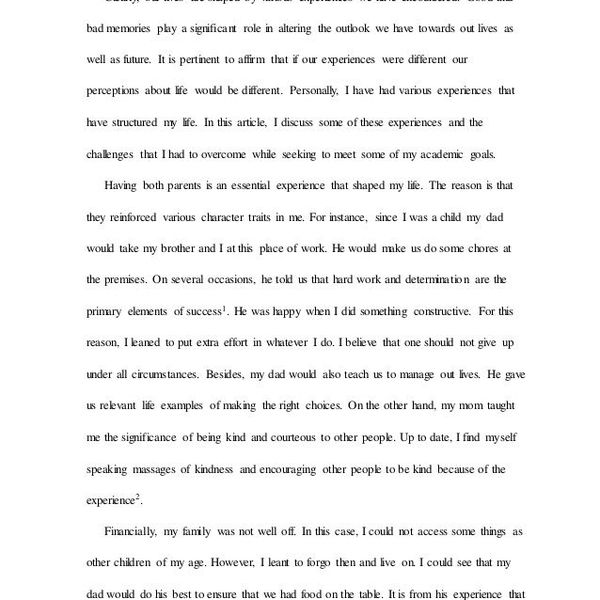My Life Experience Essay: How to Write a Perfect Paper
Writing a perfect paper is not as difficult as you may think. The key is to take your time and follow these guidelines, which will help you write the best possible essay.
- Read over the prompt carefully. This will give you an idea of what the professor wants from you.
- Write down any notes or ideas that come to mind while reading, but don’t worry about organizing them yet.
- Organize the notes into paragraphs or sections based on how they relate to each other and what you want to say in your essay—not necessarily based on how they came about in your brain!
- Write a rough draft of whatever comes up next in your mind after completing each section or paragraph (you can always change it later!). This helps get all of your ideas out onto paper so you don’t forget anything important!
- When finished with this step, read through your rough draft again and make sure everything makes sense logically: Do all of the paragraphs flow well together? Did I use too many quotes from others’ works? Are there any instances where my argument could have been stronger? Make changes accordingly!

Main 4 part of Life Experience
What is Life Experience?
Life experience is a term you might hear when talking about the benefits of having lived life. It’s not just things you learned in school or on the job, but also things you’ve experienced firsthand—the good, the bad and the ugly.
Life experience can be used to describe someone who has lived through a lot and has a lot of knowledge to share. It can also be used to describe someone who knows how to do something because they’ve done it before (like how we say “lifeguarding experience”).
It’s important to note that life experience isn’t just about what happens to us—it’s also about what we choose for ourselves. When we choose our own path and make decisions about our lives, we gain valuable insight into ourselves and the world around us.
How to Choose Topic For My Life Experience Essay?
The topic of your life experience essay should be something that is relevant to you and your life. It should be something that has a personal meaning. It should be something that you can relate to. You should be able to explain why the topic is important to you, and how it relates to who you are as a person. The point of this essay is to show how your experiences have shaped who you are today, so choose a topic that highlights some aspect of yourself that others might not know about already.
The key here is finding a topic that will help you develop a deeper understanding of yourself and your own values, beliefs, and experiences. This will allow for more depth in your writing, which will make for a more compelling final product.

Overall experience of life
How to Structure a My Life Experience Essay
A My Life Experience Essay is a form of personal narrative that can be used to describe an event or series of events in your life. The structure of the essay will vary depending on what you’re writing about and how long it takes place over, but there are several standard elements that you should always include in your essay:
-Introduction: This is where you introduce the topic of your essay. You should explain why this event was significant to you and how it shaped your life up until now.
-Body Paragraphs: These paragraphs will provide more details about the events in question. They should be organized chronologically, so start with the first thing that happened and then go on to explain everything else that occurred afterwards in chronological order (e.g., “First thing happened, then this happened, then this…”).
-Conclusion: Here’s where you wrap things up by summarizing what happened during those events and how they’ve affected your life today.
Tips for Writing a Personal Essay
When you’re ready to write a personal essay, it’s important to get started on the right foot. Here are 5 tips for writing a personal essay that will help you create something that will stand out from the crowd:
- Start with a hook. You want your reader to get invested in your story right away, so make sure you have some kind of opening line that will pique their interest and make them want to keep reading. This can be as simple as describing an interesting experience or situation, or it could be more complex, like laying out a question for your reader to answer as they read on.
- Don’t be afraid to get personal! Personal essays thrive on emotion and honesty—if you’re not feeling something while writing, chances are good that your reader won’t either. Make sure that whatever you’re writing about comes from a real place in your life and connects with what readers might relate to themselves.
- Don’t be afraid of conflict! A lot of people shy away from writing about hard times because they don’t want to seem whiney or self-indulgent—but conflict is what makes stories interesting! If there were no obstacles in the way between where we are right now and where we want.

Life Experience Quote
Need Help To Write Your My Life Experience Essay?
We have a team of professional writers who specialize in writing essays and other academic papers like research papers, literature reviews, term papers and dissertations. Our writers are native English speakers, they are well-educated and have had at least 5 years of experience in writing essays and other academic papers.
We have many satisfied customers who have already used our services and we would be glad to help you too. If you need help with your essay, please contact us.
Related video to My Life Experience
- How To Gain More Life Experience Than The Average Human

